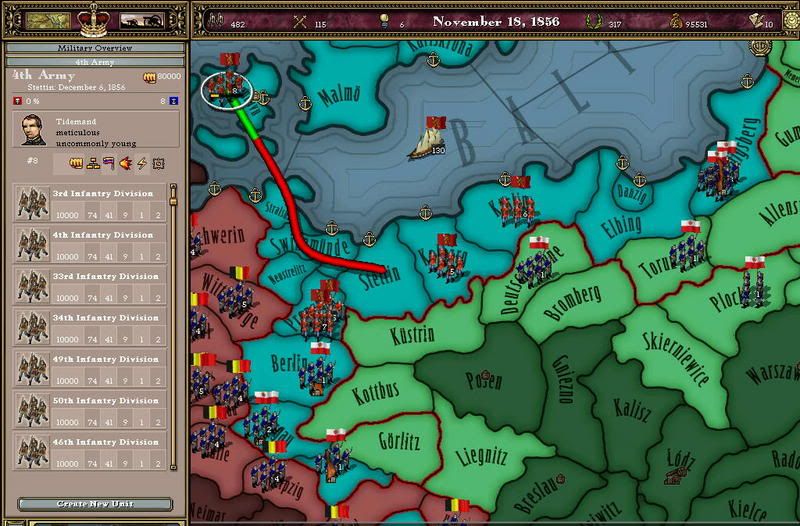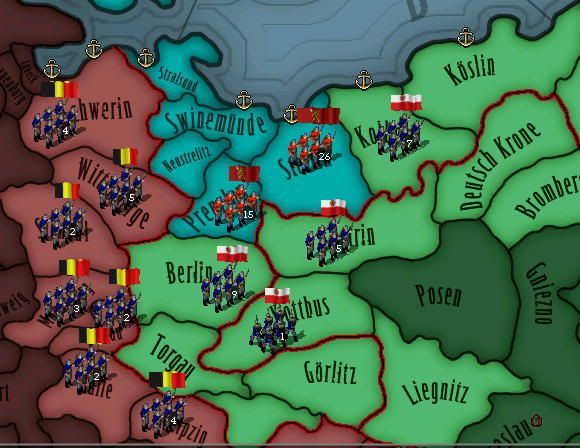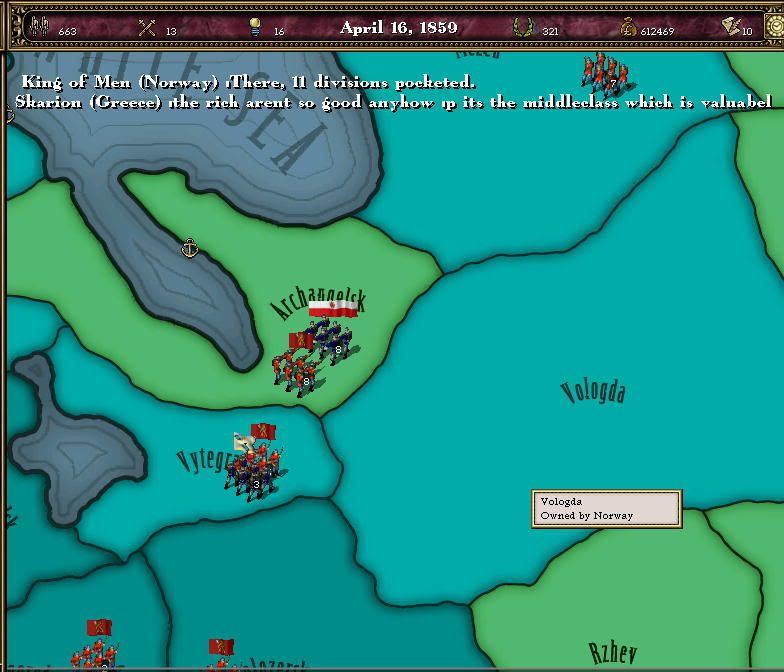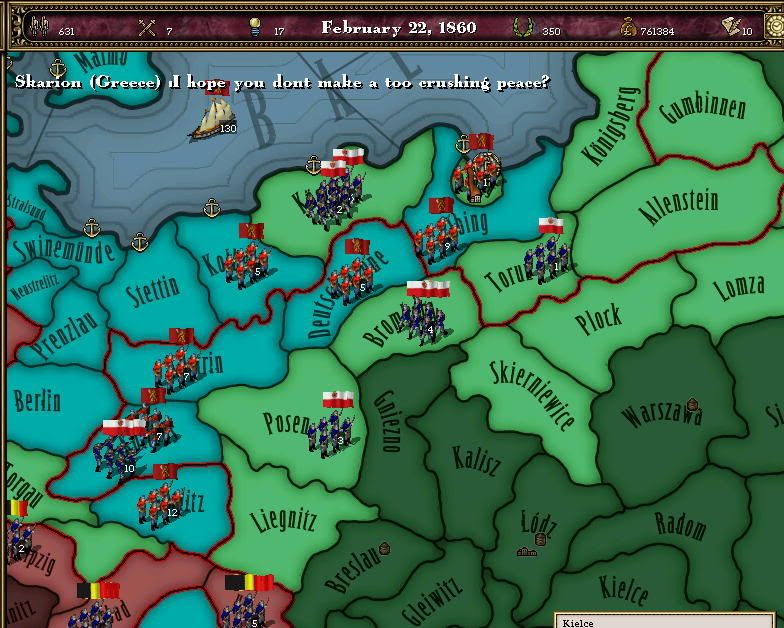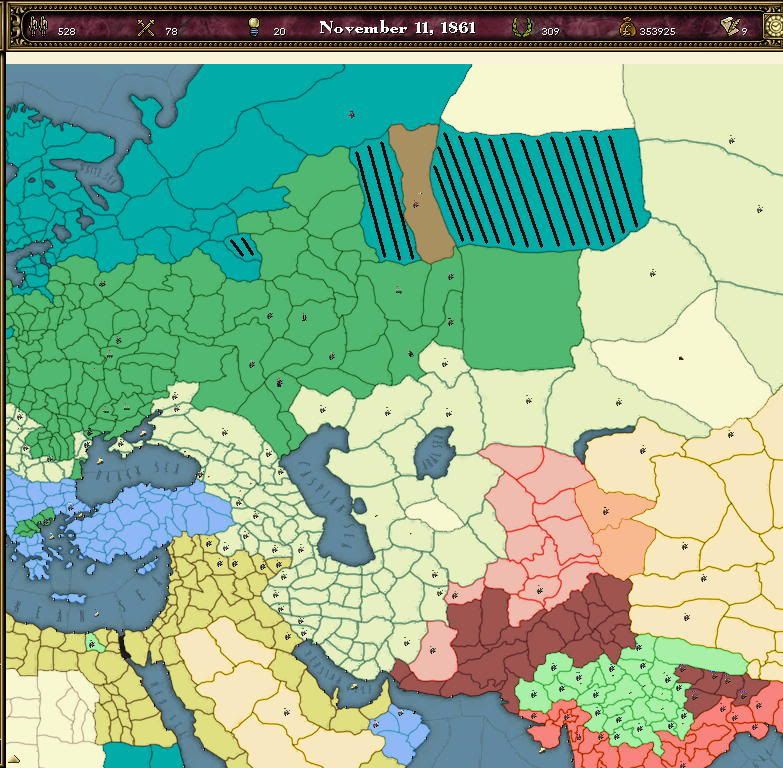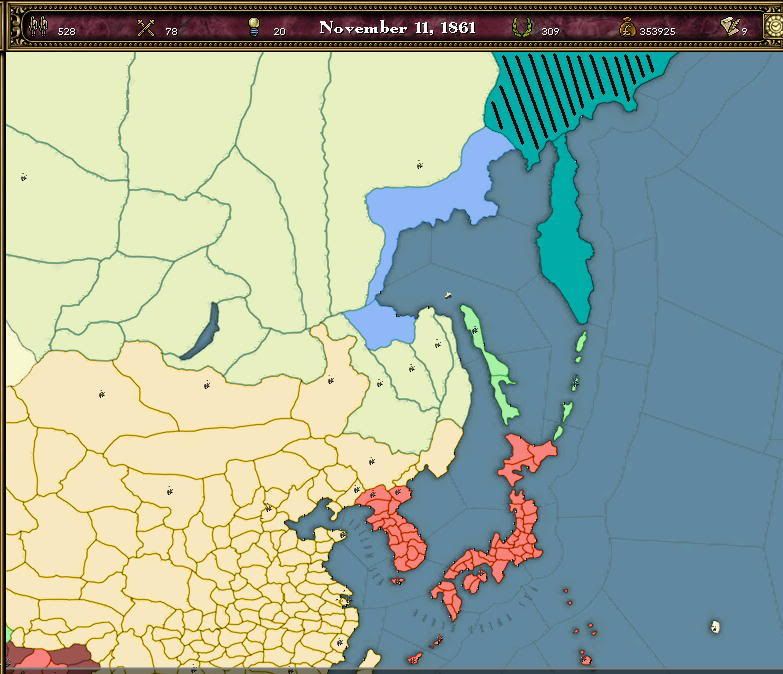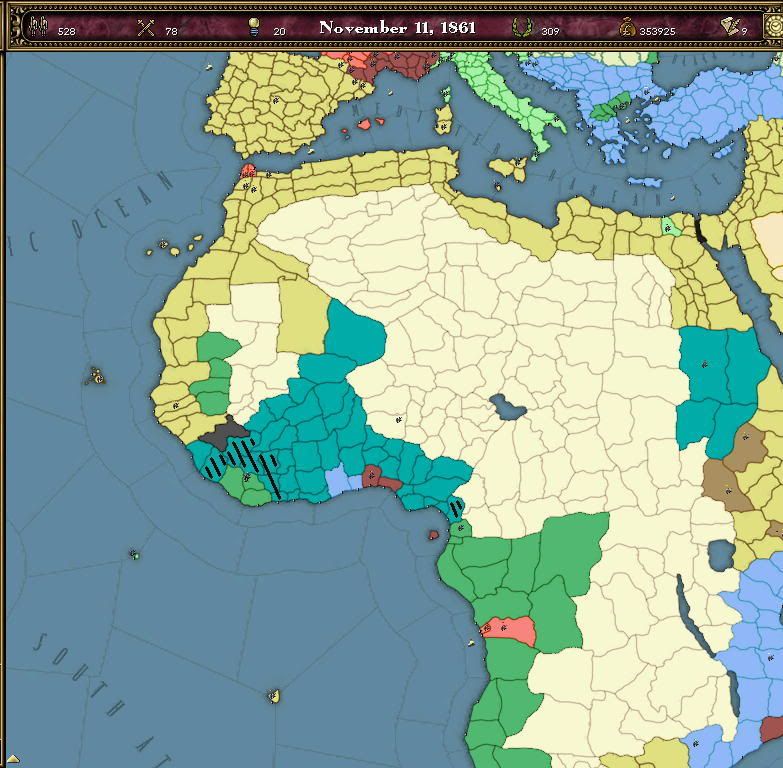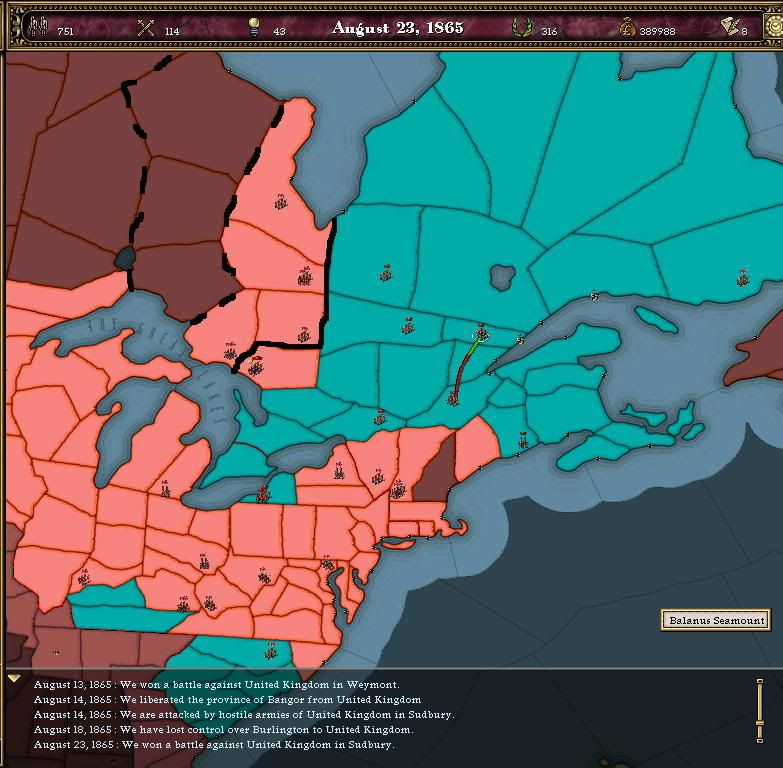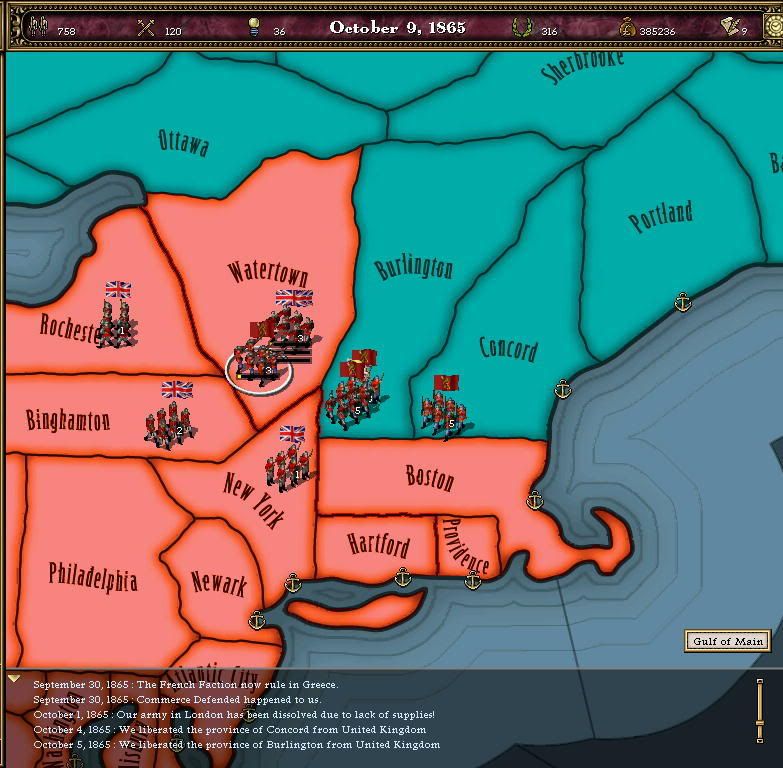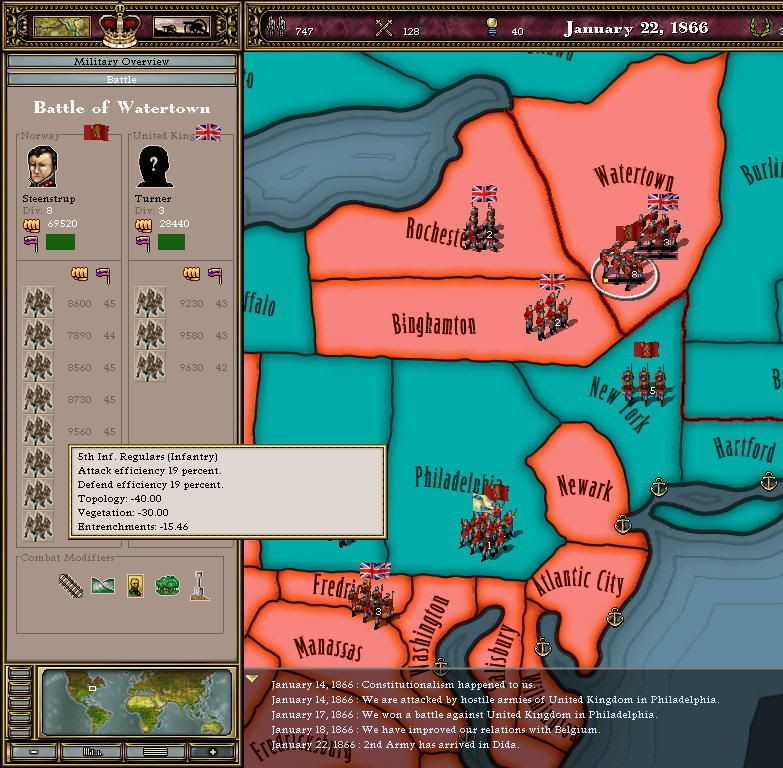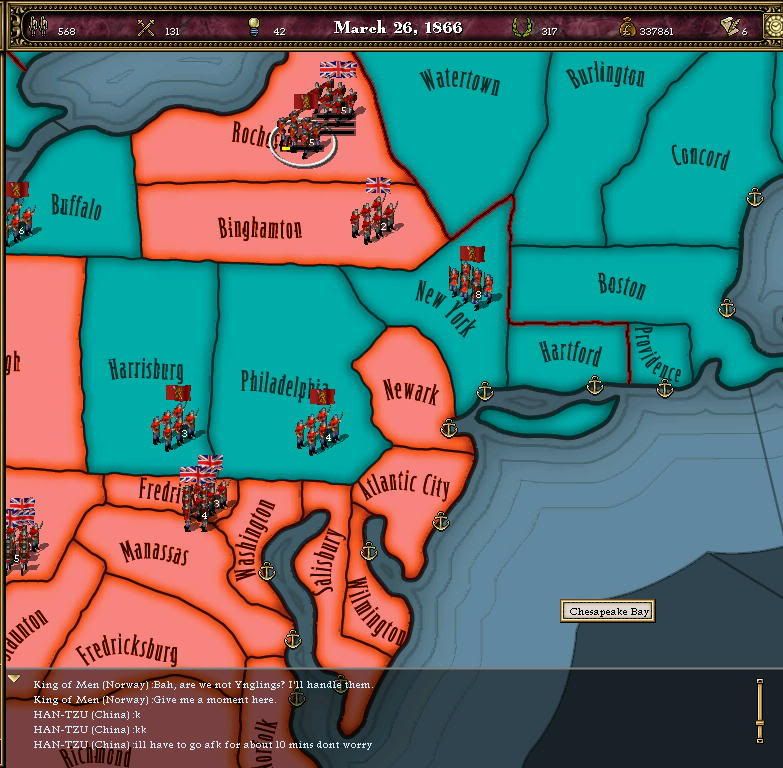Malmø, Sweden
February, 1858
The sun is not yet over the horizon, but the people of Malmø hardly notice its absence. The forge-lit factories have long since opened to take in the shivering hordes of
stril workers from the dismal tenements; now the eternal, melodious BING-BING-BING of steam-powered drop hammers peal out over the snowy cityscape, broken only by the angry-god-screaming of furnaces and the tooth-grating whine of lathes. Here is the heart of Norway's strength; the cannon that smashed London were forged here, from iron mined only a few dozen kilometers north.
Around the vast factories lie even greater areas of squalid tenements, row upon row, towering six or seven stories tall and so close together that no sun ever reaches the street. But
strils have little need of sunshine, toiling as they do fourteen hours a day in the factories they are assigned at birth. An iron bureaucracy monitors each hour of their lives; from the moment an infant's name is entered into the
stril-book, to the day when its broken body is thrown into the eternal corpse-fires, there is always a form to fill out - birth, death, assignment to new work, sickness, marriage, moving to a new tenement, loss of limbs in accidents... They are all recorded; in the outskirts of Malmø, the growth of slag heaps is outpaced only by the construction of enormous archival halls to hold the papers that record a
stril's every movement. Their words, too, are set down on paper; it is easy to buy informants among such a people. A higher ration of coal; an additional blanket; a day off; assignment to easier work - for such bribes, anyone might betray a brother or friend, and many do. Conspiracy is impossible, rebellion a private dream.
Iron clangor; taste of coal in the air; snow grey with ashes; warmth only near a forge. Such is the life of a
stril.
----------------------------------------------------
The war with Poland was ostensibly fought for control of the industrial lands around the Elbe; the real reason was the growing concern of the Polish leadership with Norwegian industrialisation. The humiliation of England had been a powerful warning. Hoping to profit by the length of the unguarded border - the Ynglinga Hird was deployed on the western coast against possible English retaliation - the Poles attacked without warning, swarming into Norwegian Germany and Finland.
The Poles, however, were ill prepared for the swiftness that a modern train system, and a General Staff thoroughly prepared for mobilisation problems, lent to the Norwegian response. While Finland was abandoned to guerrilla effort and defense by distance, Norwegian troops reached Stralsund only a week after the initial declaration, while it was still in the hands of its local garrison. The
fait accompli that the Poles had hoped to present as a basis for negotation was thereby turned into a grinding slog against constantly stiffening resistance, for which their lightly equipped troops were ill prepared. The Ynglinga Hird, with breech-loading rifles and a battery to every regiment, threw the invaders back to the border with contemptuous ease. There, however, they were forced to halt by logistical concerns, particularly the need to reinforce Finland.
Although defeated in the initial battles, the Poles were still numerous, and their hard-earned experience in modern warfare was put to good use - as one Yngling general put it, "When you play
hnefatafl with good players, you get good." With the Finnish front stabilised, the Norwegians gathered their strength for a massive thrust towards Krakow; knowing that they would be unable to stand against the terrible massed artillery of Yngling formations, the Poles at first gave way, and then snapped the jaws of a trap, striking at the vulnerable Norwegian flanks - held by auxiliary
stril troops, without the heavy artillery that first-line Yngling formations were issued. An army of a hundred thousand men was cut off and threatened with annihilation; its loss would be a disaster of the first order to a manpower-strapped Norway. Fortunately, a relieving army of Yngling reserves, called up for garrison and occupation duty, was able to fight its way through the blocking Polish army and extricate most of their comrades, though with the loss of all their heavy equipment.
The initial attacks:
Although disaster had thus been averted by a narrow margin, the Yngling troops were nevertheless forced onto the defensive on the Baltic front, and the Poles were content (after a few memorable disasters) to let their entrenchments alone; the main action thus moved to Finland.
Stalemate:
Although there had been fighting in the north in previous wars, it had never been on such a scale; before the introduction of railroads, the trackless wastes had never been able to support large numbers of troops. Now, however, men fought and died by the tens of thousands; in a single brief Arctic summer, two Polish armies died, and a hundred thousand men marched into captivity, to die in the distant mines of America.
Success in the north:
However, the Poles raised new regiments from their inexhaustible Siberian domains, and as the fighting moved into the broad plains of Russia, the Yngling offensive bogged down. The vast expanse of land that had to be held prevented any proper concentration of force; even with the divisions spread dangerously thinly, the left flank hung in the air, not quite reaching the Urals. Only reinforcement by newly arrived colonial troops allowed Moscow to be taken, and then by the thinnest of margins, against a stubborn and well-fought Polish defense.
Even Polish reserves of manpower were not infinite, though; the steady drain of strength from the quiescent Baltic front, and the rebuilding of the heavy artillery lost in the initial disasters, permitted the commanders there to again consider offensive operations. The breakout began with a heavy attack in the direction of Danzig; it ended with a score of Polish divisions surrounded and dying, and the way to Krakow open.
Breakout!
By now, though, Norwegian logistics were strained to the breaking point, with the movement of so much skilled labour out of the factories. Besides, other Powers were making concerned noises about the balance of power. The peace treaty, therefore, was not too shattering when it came; Poland's core territories were left untouched, and it was even permitted to keep most of its colonies. Its power to fight, however, had been drastically reduced for years to come; any future conflict would see Norway's Baltic flank safe, at least for a generation.
Code:
"April 22, 1861 : Norway accepted peace with Poland on the following
terms : Cameta to Norway, Ivanovo to Norway, Tobolsk to Norway, Perm to
Norway, Nelson to Norway, Monorovia to Norway, Buke to Norway, Dida to
Norway, Duala to Norway, Porto de Moz to Norway, Koroko to Norway,
Odienne to Norway, Beyla to Norway & Chukotka to Norway. "
----------------------------------------------------
Damn the AI, anyway; I was all set to expand my industries, and they went and attacked my completely unguarded border! And, I admit, I got a little overconfident when my artillery-heavy armies totally smashed them, and didn't keep a continuous front. There's a mistake I won't make again. In the end, I just accepted the first peace offer that gave me any territory, since playing against the AI isn't exactly a fair match. I really need to expand my war industries; at the current rate of small arms production, I can build a division every forty days. As for artillery, you don't want to know. Not a flake on the market, either. Fortunately I have all the sulphur I need.



